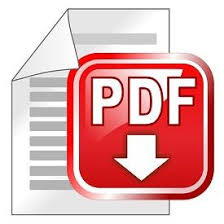Location:
PMKI > Organizations
& Governance > Corporate/Organizational
Management.


- General Management
- The Management of Project and
Program Management
- Sponsorship and Project Control
Boards
- Useful External Web-links &
Resources.
Other related sections of the PMKI:
- Corporate/Organizational
Governance
- PMOs (Project, Program or
Portfolio Management Offices)
- Portfolio Management
- Project Management
The role of governance is to set the objectives and 'rules' for an organization. The role of management is to achieve the objectives working within the 'rules'.
WP: The Functions of Management. Henri Fayol defined the five functions of management in his 1916 book Administration Industrielle et Generale, these functions are discussed in the modern context. For more on the foundations of Fayol's theories see: The foundations of Henri Fayol’s administrative theory.
WP: Understanding Power and Authority. Managers are said to possess a `right to manage', which implies using power and authority to direct the work of others. This paper looks at the sources of power and authority.
Art: Eliminating the fear factor. W. Edwards Deming's 14 key principles for management #8 is: Drive out fear, so that everyone may work effectively for the company.
WP: Decision Making. Decision making is a central part of any management role, this paper looks at the different types of decision.
WP: Problem Solving. The process of solving problems, generating alternatives, and finding better means and cost efficiencies is at the heart of effective management.
Blg: Fine Tune your detectors. Good information is essential for good decisions.
Art: Are organization charts still useful?. This article suggests the traditional organization chart (OBS) is of very limited value in a modern organization, and of less value in a project or program. There are less restrictive ways to document seniority, responsibility, pay-grade, etc. Click through to see more on the origins of this type of management chart (including the WBS).
Knowledge management - click through to our knowledge management section.
The evolution of modern management theory is outlined in The Origins of Modern Management. See more on the origins of modern project management.
This section looks at the overall capability framework
needed by an organization to consistently deliver
successful projects and programs including the roles and
responsibility of its project
directors, sponsors and others that manage project and
program managers.
Project, Program and Portfolio Management are used to a greater or lesser extent by most organizations and are well defined and understood, if not uniformly well applied. Within this frame, projects start when they are formally authorized and finish when their deliverables are transitioned to the client. What is missing from the literature is the concept of an organizations overall Project Delivery Capability (PDC) or Value Delivery Capability (VDC), starting with processes to encourage innovation and assess the viability of ideas, through to the management of the organizational change needed to achieve the maximum value from the benefits created by effectively using each project’s deliverables.
There would appear to be two key factors preventing program and project managers from achieving the level of success they are capable of, resulting in a significant loss of value to the organizations that initiate projects and programs. The first major failing is the complete absence of any body of literature and practice that focuses on the management of project program and portfolio management. We don’t even have a meaningful term that encompasses the overarching management processes needed to successfully move an innovative idea from its conception, to strategy, through a portfolio selection process, into the project management sphere and then into organizational change and benefits realization. The second interlinked issue is the general confusion in middle management ranks between the governance of the organization and prudent management leading to the concept of ‘project governance’. Confusing governance and management is a recipe for value destruction. Some lower level managers consider any oversight or decision making role to be a ‘governance function’, other authorities see governance as the exclusive responsibility of the organizations ‘governing board’ who may chose to delegate some authority to management but who remain accountable for the achievement of ‘good governance’.
The overall framework required by an organization to effectively manage the management of its projects and programs, includes:
WP: The Strategic Management of Projects: Project Delivery Capability (PDC). The overall capability delivery framework needed by an organization to successfully manage its projects and programs. PDC describes an organization's ability to select, nurture and deliver projects and programs effectively.
WP: PDC Taxonomy. The terms used to describe Portfolio, Program and Project management (a PPP Taxonomy) and their key governance, support and oversight processes within an overall Enterprise Project Management Capability.
PP: The Management of Project Management. This published journal paper and conference presentation defines the gaps in current literature and practice then outlines the overall framework required by an organization to effectively manage the management of its projects, programs and portfolios.
WP: Multi-Project Management. The role of a project director; a manager of project and program managers within a functional area of an organization.
Art: Professional Project Management. Developing the concept of a professional project manager and professionalism in the management of projects.
WP: Enterprise Environment Factors and Organizational Process Assets – The Differences. The PMBOK® Guide defines ‘Enterprise Environment Factors’ (EEF) and ‘Organizational Process Assets’ (OPA) as the two forms of support (and in some cases constraints) the organization and the wider community provide to assist project teams.
PMOs are a key element in the management of project & programs - click through to the PMO page.
See also Portfolio Management and Program Management.
The roles and responsibility of project directors and others that manage project and program managers including Project/Program Sponsors, Senior Responsible Owners, and Project Control Boards (PCBs). Including the roles and responsibility of the project or program manager’s line managers in the creation of value, skills development and support.
WP: Project & Program Sponsorship. The critical role and responsibilities of the Sponsor (and project control boards) in the creation of value, the function is a key element in the successful delivery of projects and programs.
DP: GAPPS (2015) A Guiding Framework for Project Sponsors. This framework is a performance based competency standards applicable to project sponsors in all fields of endeavour.
The critical role of the Project Sponsor in providing active support and guidance to the project is recognized by PMI and is the subject of our Successful Project Sponsorship - The critical role of the Senior Responsible Owner workshop: view course details.
DP: PMI's report:Executive Sponsor Engagement— Top Driver of Project and Program Success. Pulse of the Profession® In-Depth Report.
Art: Make Your Steering Committee Effective. Are PCBs and steering committees really needed, and if they are how to minimize their running costs.
Blg: Is your steering committee costing $5000 per hour? Effective steering committees work with the project manager and sponsor to help the project successfully navigate the organizational stakeholder environment and resist the urge to interfere in the actual running of the project or program!
WP: A Project Manager’s Mangers. This White Paper is to look at the three main management processes that support the efficient management of a project; Portfolio management, Program management and the role of Project Directors.
PMI has a range of resources to assist. The two key publications are the Standard for Organizational Project Management (OPM), this provides a framework to align project, program, and portfolio management practices with organizational strategy and objectives. This standard is supported by the Organizational Project Management Maturity Model (OPM3) which defines a framework to measure progress towards maturity. Implementing these concepts is assisted by the Implementing Organizational Project Management: A Practice Guide. Finally, the Governance of Portfolios, Programs, and Projects: A Practice Guide takes a closer look at the different types of governance and how you can implement or enhance governance on your portfolios, programs, and projects. All of these standards are free downloads for PMI members: https://www.pmi.org/
 For papers on organizational management presented
at the PGCS Annual Symposium see:
For papers on organizational management presented
at the PGCS Annual Symposium see:
https://www.pgcs.org.au/papers/general-management/